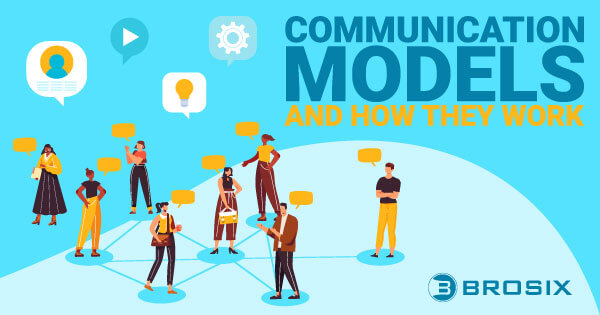As technology evolves and new communication and mediums continue to emerge, more and more obstacles to effective communication arise as well.
One of the most common roadblocks being emotional barriers.
Surely everyone can think of a situation when their emotions got the best of them and got in the way of effective communication, right?
As a complex topic, first an in-depth analysis of emotional barriers to communication is necessary if we’re to understand how to successfully overcome them.
From clearly defining what emotional barriers actually are, to practical examples – this article aims to provide a detailed exploration of how emotional barriers impact communication.
Let’s dive in!
What are emotional barriers?

An emotional barrier is a mental block that restrains you from openly expressing your thoughts and feelings. It affects how you interpret other people’s behavior, which influences how you formulate your arguments. These emotional roadblocks interfere with the way you communicate overall.
Perceptions are, of course, heavily impacted by past personal experiences, which are one of the primary triggers of emotional barriers across a range of communication situations.
Emotional barriers not only lead to miscommunication but, to a greater extent – to serious conflicts. Moreover, within the workplace, emotional barriers to communication generate major unproductivity and, therefore, significant loss for businesses.
Examples of emotional barriers

Emotions are a powerful motivator. When acted upon, some of them may lead to incredibly positive and advantageous situations, while others quite the opposite.
Usually, the emotional barriers leading to spectacular communication disasters are the strongest emotions at the negative end of the spectrum.
Let’s briefly illustrate this idea through a couple of examples.
- Fear
Fear, in its purest form, is said to be the most powerful negative emotion. Among its declensions, insecurity and embarrassment, which are common emotional barriers of communication.
Within the workplace, situations arise when workers fail to communicate effectively because of the fear of being judged or not being good enough. For example, during a meeting, employees may refrain from making a comment or giving a suggestion for fear of sounding ridiculous. This can ultimately prevent a potentially great idea from seeing the light of day and turning into something amazing.
- Anger
Anger is a forceful enemy of healthy communication because it affects – in quite a significant part – the way the brain processes information.
When you’re angry, you’re less logical. This makes you less open to other people’s opinions and less capable of solving problems. Therefore, anger and poor emotion management quickly turn into a team cohesion issue, which alters overall productivity within the workplace.
In a professional environment, different teams have to work together on specific projects.
Since effective group communication is a key factor for a company’s success, the need to overcome emotional barriers is vital.
- Pride
Pride can stand in the way of successful communication in a multitude of ways.
Stubbornness, always having to have the last word or allowing your ego to get in the way and not being able to admit when you’re wrong are huge blocks to effective communication.
Collaboration is what makes teams work and is imperative in today’s competitive business environment. When emotional barriers such as pride arise, teamwork and collaboration are unlikely to flourish.
- Anxiety
This emotional barrier is one of the most common, appearing in everyday life. It usually has a negative impact on the part of the brain required for effective communication.
Anxiety is an emotional barrier that hinders effective communication since having an anxious disposition impairs judgment and our ability to act. Consequently, anxiety can stand in the way of career development.
- Jealousy
Jealousy or envy are major obstacles to effective communication. They can lead to intentionally wrong or misguided information being presented. This obviously wastes time and other resources, which for a business, is counterproductive.
- Apathy
Apathy – which can also be understood as a lack of employee engagement – is a pressing challenge for any organization. It reduces time efficiency and the ability to take on new projects, which are crucial in the modern work landscape.
Thus, modern companies should turn their attention toward creating better communication programs to foster personal development, collaboration, and teamwork. Besides offering significant financial benefits, these are imperative for preventing workplace apathy and motivating employees.
The greater employees’ openness and receptiveness, the more productivity prevails!
How to overcome emotional barriers in communication?

As people grow, make new relationships and get to know themselves better, they also elevate their emotional intelligence. With it, emotional barriers are more likely to be toned down and overcome.
To conquer emotional barriers, you have to be open to introspection and willing to put in extra effort to work on yourself, your feelings and relationships.
Regardless of each individual’s particular emotional barriers, there are plenty of techniques that can help. From therapy to personal growth classes, meditation, or even yoga – the sky’s the limit.
When starting your journey honing your emotional intelligence and learning how to better manage your emotions, there are a couple of techniques that can help.
- Practice self-awareness: understanding why you are experiencing a negative emotion is very important.
Start by asking yourself a couple of questions like:
- What was the emotion due to?
- What could be done to treat the emotion’s underlying cause?
- What could you do to stop that from happening again?
- Be aware of how you feel
It takes practice to become aware of and understand your feelings. Make sure to pay attention to your body as well as your feelings. With some emotions, you could experience physical sensations; for instance, your muscles might tense up or your face might feel hot.
- Explore mindfulness techniques
Frameworks like TEARS and HOPE can help you understand your emotions better. Practicing mindfulness is proven to not only have numerous psychological benefits but also plenty of cognitive and physical gains as well.
- Identify your emotional triggers
Observe patterns! It’s likely that you have – as we all do – a particular way of responding to certain situations.
Once you know that specific circumstances make you angry, anxious, jealous, or whatever, it’s easier to avoid getting caught in the fire of those emotions.
- Don’t blame
Regardless of the emotions you’re experiencing or the situation that triggered them, it’s important to remember that you are the sole individual responsible for how you’re feeling.
While various contributors are external factors – the process of feeling and emotions is something internal and under your control.
You are the one providing meaning to something, so it’s in your power to not let any situation control your emotions.
The extent to which you let something affect you, and how you decide to act on those feelings is up to you.
- Accept imperfection
In situations where different emotional barriers are triggered, you must remember that nobody is perfect – not even you.
Therefore, the next time you’re feeling angry with someone, or with yourself, remind yourself that making mistakes is part of being human. Furthermore, try to look at it from a positive perspective – there’s a lesson to be learnt everywhere, which means more growth opportunities.
A framework to deal with emotional barriers to effective communication

Breaking free of emotional barriers is usually not something that happens overnight. That’s because emotions are very complex. They are at the very core of our existence.
Here are some actionable tips worth trying to help manage difficult emotions whenever they manifest:
- think about the best way to express your emotion;
- learn how to change your mood;
- build positive emotions;
- inject some humor;
- seek support.
Wrap up
Overcoming emotional barriers is one of life’s greatest challenges. However, when you work on this, the results are most rewarding. It not only paves the way for stronger interpersonal relationships but also for a more empowered and balanced sense of self in all areas of your life.
Emotional barriers are some of the most common impediments to effective workplace communication, as they can alter the group communication dynamic.
Having such a powerful impact on productivity, modern companies ought to understand the need to implement programs to help employees deal with emotional barriers. Personal development workshops and training sessions, for example, make for an excellent start.






